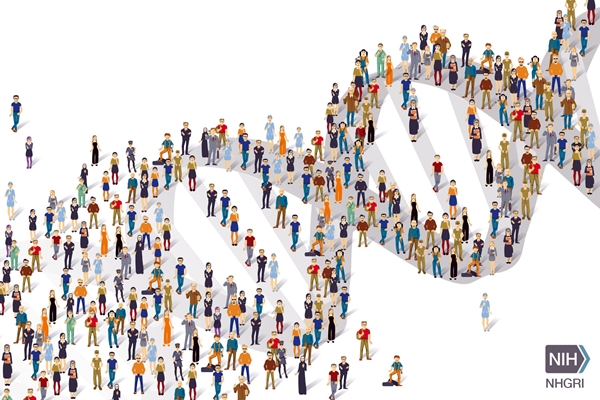11 Mar. 2019. The first batch of data from a large-scale genomic sequencing project in the U.K. shows strong associations between several gene variations and common health conditions. The U.K. Biobank in Cardiff, Wales, and its partners Regeneron Genetics Center in Tarrytown, New York and drug maker GlaxoSmithKline, or GSK, in London describe their findings in an advance, non-peer reviewed, article on the pre-print web site BioRxiv, published on Saturday, 9 March.
The U.K. Biobank recruited 500,000 individuals beginning in 2006 to volunteer their genetics data to help prevent, diagnose, and treat a range of common diseases, including cancer, heart diseases, stroke, diabetes, arthritis, osteoporosis, eye disorders, depression, and forms of dementia. The volunteers provide provide bio-specimen samples, such as saliva or blood, for analysis, as well as access to their health records, with all personal identifying information in the donated records removed.
Regeneron Genetics Center is a subsidiary of the biotechnology company Regeneron that applies high-throughput genomic sequencing to discovery of new treatments. The center sequences exomes, that cover the exons, or protein coding regions of the human genome. Exomes account for only a small part, 1 to 2 percent, of base pairs in the genome, but they represent about 85 percent of all disease causing mutations. The Regeneron center then correlates results of the whole exome sequencing to de-identified medical records.
The first reports show strong associations between loss-of-function mutations, where the gene’s DNA chemistry prevents production of needed proteins, and several common health conditions. The researchers found in nearly 7 of 10 cases (69%), participants’ genes expressed 10 or more loss-of-function conditions, with nearly all (97%) genes expressing at least one of these conditions. The strongest associations found in the data linked PIEZO1 gene variations to varicose veins, MEPE gene variations to bone density, IQGAP2 and GMPR variations to blood cell traits, and COL6A1 alterations to corneal resistance, the ability of the eyes’ outside layers to respond to stress.
In addition, the analysis found 2 percent of the participants display a genetic variation that requires medical treatment. Among those results are rare mutations in BRCA1 and BRCA2 genes that code for proteins suppressing tumors, which indicate higher cancer risks.
“There is so much actionable information in this resource that can be utilized by scientific minds around the globe.,” says Aris Baras, head of Regeneron Genetics Center in a company and U.K. Biobank statement. “We are hard at work mining the data for novel findings that will accelerate science, innovative new medicines, and improve patient care, and we are excited to have others join us in this important quest.”
As reported by Science & Enterprise in March 2017, Regeneron and GSK have first access to these records, with their initial findings reported on Saturday. Regeneron and a number of other biotechnology and pharmaceutical companies plan to analyze and report on the remaining 450,000 data records over the next 2 years.
U.K. Biobank is making the initial data available to the research community. The organization also says it updated its data records on all 500,000 participants, and offers new and updated algorithms for analyzing asthma, kidney disease, dementia, Parkinson’s disease, stroke, and heart attack.
More from Science & Enterprise:
- Sequencing IDs Pancreatic Cancer Targets
- Data Architecture Studied to Speed Genomic Sequencing
- Algorithms Identify More Genetic Syndromes
- Companies to Analyze 40,000 Protein Samples
- Infectious Disease Sequencing Service, Training Launched
* * *


 RSS - Posts
RSS - Posts
You must be logged in to post a comment.